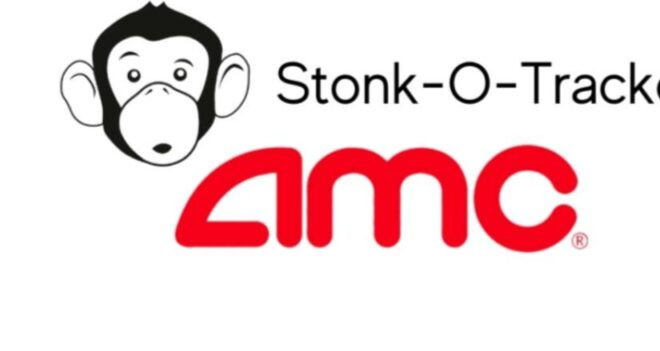How to Implement a Banking CRM Software to Get More Benefits?
In recent times, the banking realm has experienced a remarkable alteration propelled by innovation and digitalization. The surge of virtual banking services has not only granted clients amplified accessibility to their accounts and monetary data but also brought about fresh difficulties for banks. To retain enterprise viability in an overpopulated market while still delivering prime customer service experience, leveraging technological advancements becomes paramount. Integration of banking CRM software is one potential avenue that could be utilized to achieve this objective effectively.
Customer Insights
The acronym CRM stands for customer relationship management, a software design intended to optimize consumer contentment and constancy by handling their intercommunications. Specifically in the banking sector, this type of program can oversee every facet bearing on customer relations from primary engagements through continuing care and provision.
The utilization of banking CRM software offers numerous advantages. Numerous perks can be enjoyed when employing banking CRM systems. Banking entities stand to gain immensely from utilizing the services provided by customer relationship management (CRM) technology in their operations. By using a specially designed form of database, Banking institutions are able to streamline and enhance relationships with customers through automation processes such as tracking interactions or recording transactions for future analysis. Adoption of this technological system results in increased efficiency due to automating crucial activities like data entry, task assignments among others resulting on boosting organizational productivity over time.
Above all, it is pivotal for banks to utilize CRM software as it provides a means of comprehending their customers more profoundly. By monitoring interactions and transactions, financial institutions can acquire invaluable awareness into customer tendencies, preferences and requirements. This data may serve the bank well in creating specifically crafted marketing campaigns that are tailored towards individual clientele wants whilst enhancing existing products & services while also providing highly personalized support to consumers who demand superior care from such establishments alike.
Operational Efficiency
An additional advantage of employing CRM within the banking sector pertains to an enhanced efficiency. Through mechanizing ordinary operations ranging from data inputting, as well as customer correspondence, banks are gifted with greater flexibility for personnel to dedicate their time towards more valuable tasks such as customer satisfaction and forming relationships. Furthermore, implementation of CRM software can contribute in simplifying inside mechanisms like loan processing or account initiation while advancing a swifter distribution process which would ultimately enhance consumer gratification levels too.
Beyond the advantages highlighted earlier, banking Customer Relationship Management (CRM) software can aid institutions in conforming to regulatory obligations. Organizations are able to set up CRM programs that oversee compliance-centered events like Anti-Money Laundering and Know Your Customer exams. It is a means of mitigating exposure to monetary penalties due to regulation errors while simultaneously enhancing the soundness of financial systems at large.
Numerous sorts of banking Customer Relationship Management (CRM) solutions exist in the present-day market. Some CRM software vendors create certain systems explicitly for the banking domain, whereas they adapt others—namely general-purpose ones—for use in banks. To choose a suitable CRM solution, financial institutions ought to assess qualities such as how effortlessly it operates, its scalability potential and ability to blend with any current frameworks at hand.
By integrating QR code scanning functionality into a banking CRM software, customers can conveniently access their account information, initiate transactions, and receive personalized offers or notifications with a simple scan.
CRM Software Options
Salesforce Financial Services Cloud is a well-liked banking CRM software option. A cloud-dependent, customer relationship management platform designed exclusively for the financial services sector that offers an array of features customized to fulfill banks and other monetary organizations’ requirements. Among its significant offerings are adjustable dashboards, automated workflows alongside compatibility with various Salesforce products like Marketing Cloud and Service Cloud in what promises to be an all-in-one solution package perfect for your needs.
An option favored by many is Microsoft Dynamics 365 for Banking. It’s a CRM software that employs the Microsoft Dynamics platform and incorporates features such as lead management, opportunity tracking, customer segmentation, and campaign oversight. This particular product comes complete with built-in integrations which enable seamless usage of other tools in the same product family like Office 365 or Power BI – an advantageous situation for financial institutions who are already using these products.
Furthermore, aside from the aforementioned business solutions at their disposal, some financial institutions may opt to fabricate and design proprietary CRM software themselves. Though this particular method grants higher authority over customization options available for use in-house, it may prove to incur more elevated costs as well as time investments compared to utilizing an external commercial option.
Strategic Implementation
Irrespective of the methodology, it is critical for banks to assign utmost importance to employing CRM software in their comprehensive customer service and digitization tactics. Capitalizing on cutting-edge technology’s potentialities that enable efficient comprehension of customers’ needs and preferences coupled with provision of bespoke services could distinguish financial institutions from rivals while promoting unwavering loyalty amongst patrons over an extended period. It constitutes a fundamental element contributing remarkably towards triumph amidst fierce competition prevailing within such swiftly evolving industries.
It is crucial to acknowledge that installing banking CRM software serves as a partial remedy for certain customer service problems. Although the integration of CRM software can support banks in overseeing client relationships more effectively and increasing output, it cannot act as a substitute for human engagement and compassion. At its core, progress with implementing any form of CRM software hinges on how devoted bank personnel are toward leveraging technology meaningfully by harnessing its potential benefits when striving to enhance customers’ overall experiences.
Employee Training
In order to guarantee the efficient execution of Customer Relationship Management in banking, it is imperative for financial institutions to allocate resources towards teaching and assisting their employees with adapting to novel technological advancements. This training should consist of teachings on maximizing software efficiency as well as lessons centered around customer service excellence and nurturing stronger client relationships. It is paramount that banks continually provide this support throughout the adoption process.
It is essential that financial institutions communicate clearly about how they intend to leverage CRM technology to enhance client satisfaction, thereby fostering trust and allaying anxieties pertaining to information protection.
As an ultimate outcome, the utilization of banking CRM software may prove to be a robust instrument for financial institutions.



